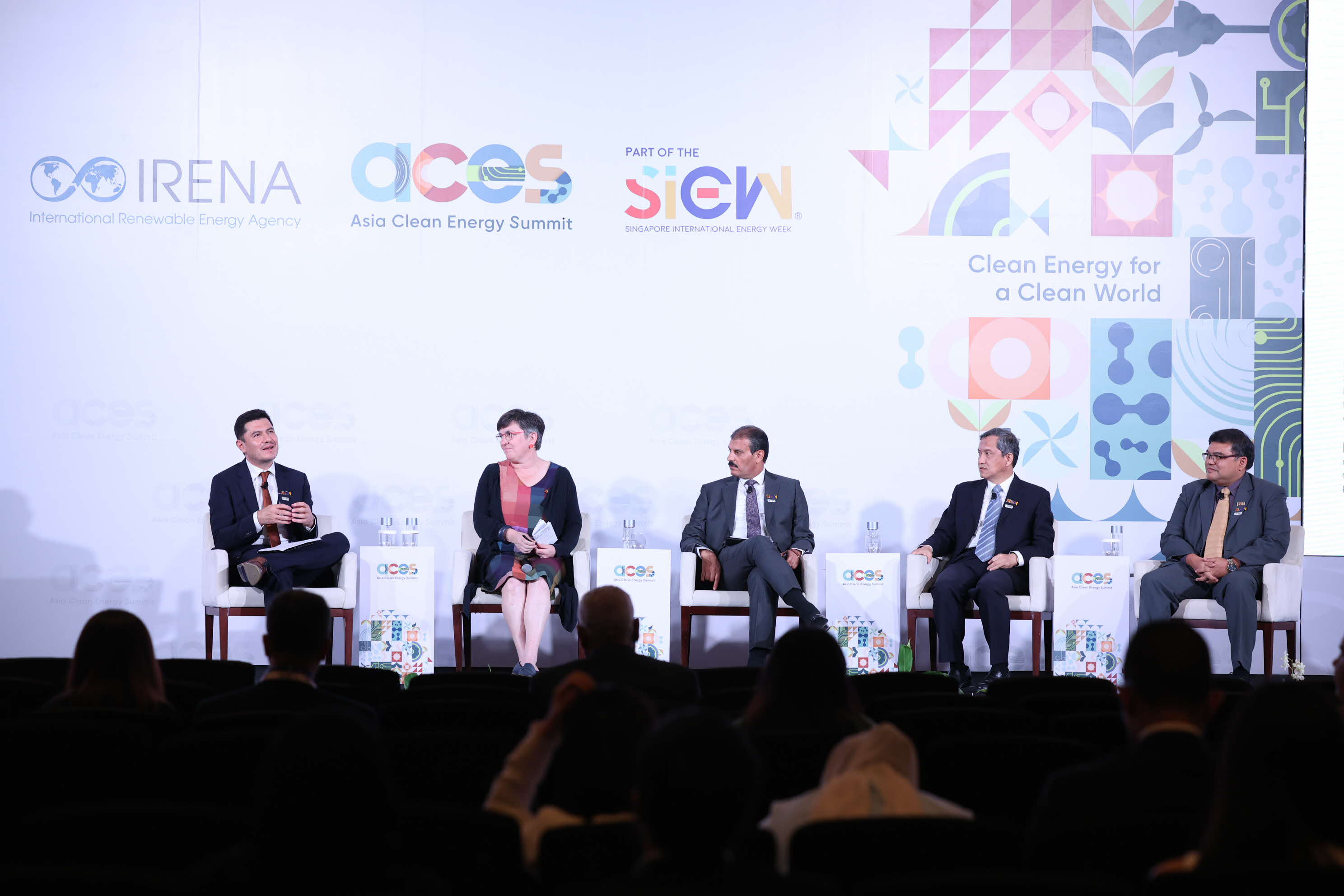Session 3 of the Singapore-International Renewable Energy Agency (IRENA) High-Level Forum brought together energy thought leaders and policymakers to share real-life challenges and success stories in the energy transition.

The exchange of diverse perspectives was invaluable for fostering collaboration and finding innovative solutions. The dialogue also helped guide views towards the importance of tailoring energy strategies to the unique needs of each region.
Francisco Gafaro, Team Lead, Power Sector Transformation, Innovation and Technology Centre (ITC), IRENA, moderated the session on "Regional Cooperation and Innovation in Accelerating the Energy Transition Towards 2030".
The need for regional cooperation to overcome connectivity barriers
Clare McLaughlin, Head of Energy Performance and Security, Department of Climate Change, Energy, the Environment and Water of Australia, emphasised that achieving net zero "requires global collective efforts”. She shared that Australia is working closely with international partners to accelerate the energy transition while ensuring energy security, reliability and accessibility.
Echoing the sentiment, H.E. Dr Ahmed Mohina, First Undersecretary of Strategic Planning, Ministry of Electricity and Renewable Energy, Egypt, highlighted his country's collaboration with Chinese organisations. Together, they are working on long-term plans for electrical connections that will link Asia with the rest of the world for green energy exports. He noted the importance of also connecting to Europe for green energy supply.
Innovation as a key driver for improving renewable energy management
Dr Wang Weisheng, Chief Technology Officer, China Electric Power Research Institute, outlined China's focus on innovation. This includes improving renewable energy output predictions through advanced weather forecasting. Additionally, China is enhancing turbine performance through rigorous testing. Dr Wang stressed the need for grid infrastructure development to match increasing renewable energy capacity, which requires close coordination.
Warit Rattanachuen, Assistant Governor, Electricity Generating Authority of Thailand, highlighted that innovation in Southeast Asia spans both commercial and technical aspects. However, he emphasised that successful implementation requires alignment on cross-border energy regulations and financial support.
While the goals of energy transition—such as reducing carbon emissions and increasing renewable energy use—are shared globally, region-specific approaches must consider regional differences to achieve an effective energy transition.
Stay tuned for live updates! Follow @SIEW_sg on Telegram and Twitter for the latest as we dive into the conversations shaping Day 2.